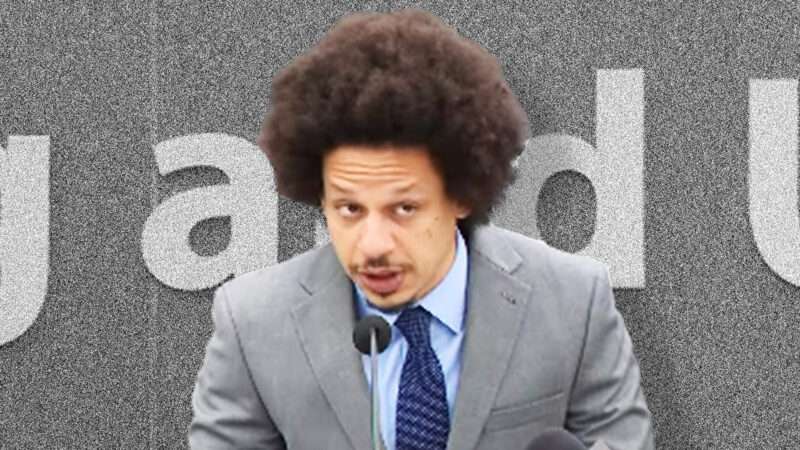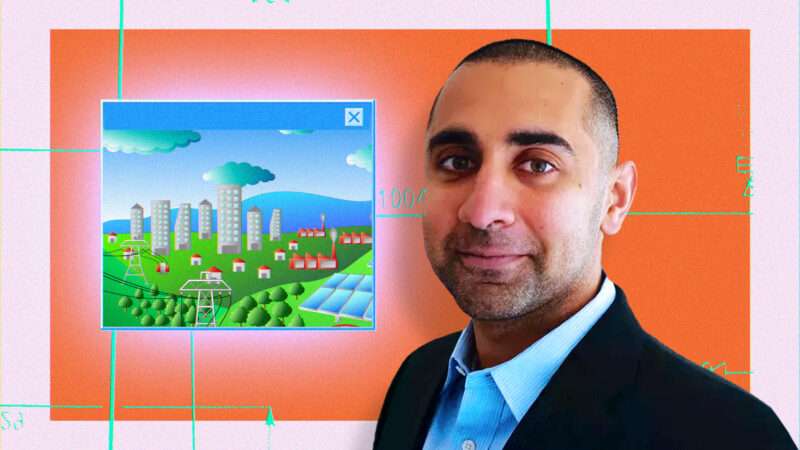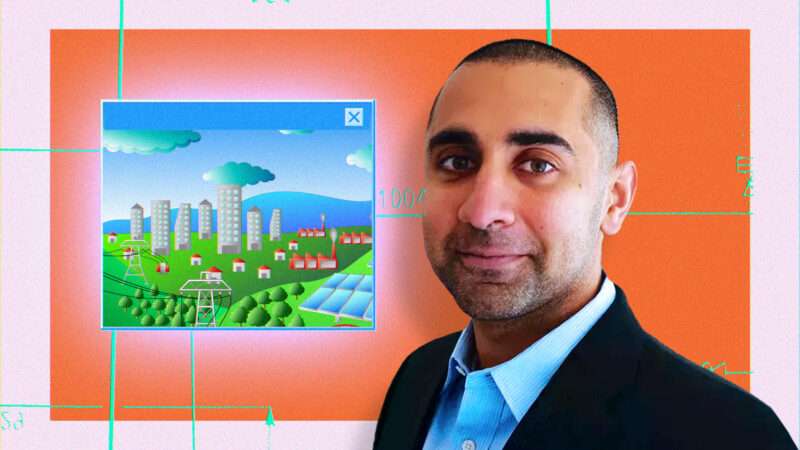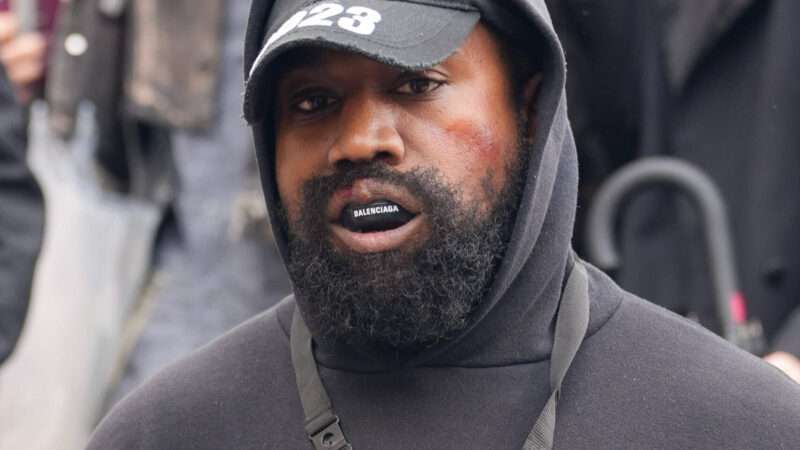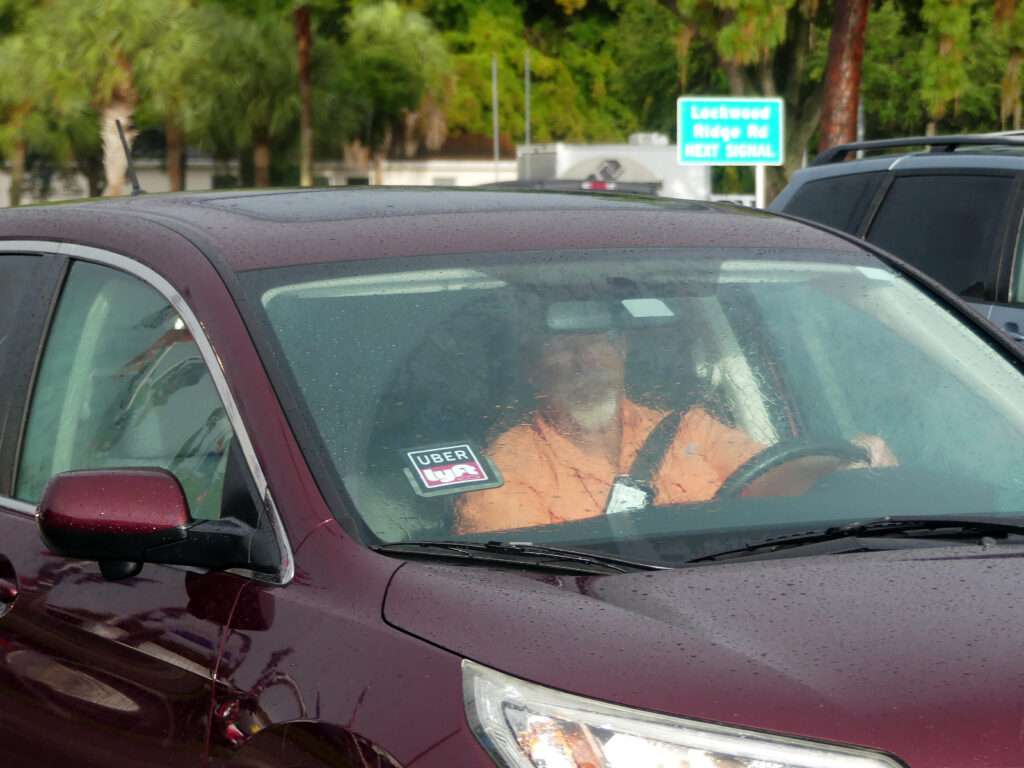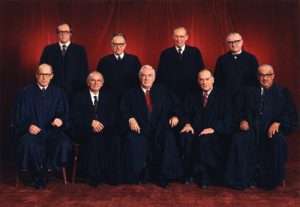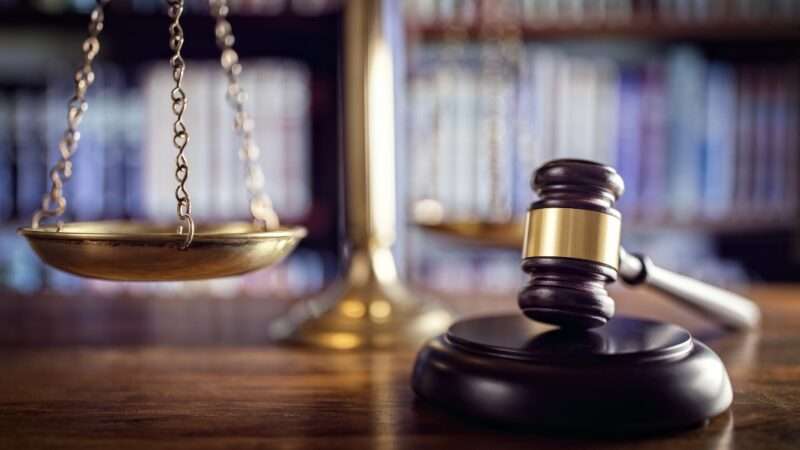I’ve been following with great interest the public discussion of Fifth Circuit Judge James Ho’s speech on “Restoring America by Resisting Cancel Culture,” and had a chance to read a draft of it. My interest both from the importance of the underlying issue and from my having known Judge Ho for over 25 years, indeed since before he went to law school (he was working for a California State Senator at the time).
I’ve also much appreciated Judge Ho’s perspective on free speech issues, for instance in Oliver v. Arnold (5th Cir. 2021), where he wrote in support of the First Amendment rights of a high school student who objected to a requirement that she “transcribe the Pledge of Allegiance and listen to the Bruce Springsteen song ‘Born in the U.S.A,'” and in Villareal v. Laredo (5th Cir. 2022), where he wrote in support of the First Amendment rights of journalists to ask questions of the police (even about confidential matters). I think Judge Ho is seriously concerned about free speech for everyone, left or right, and objects to Yale Law School’s practices because of this concern. Even if I hadn’t known him or his work, I would still want to focus on the merits of his proposal rather on any supposed ulterior motivation. But given my respect for him, I especially want to focus on the proposal’s substance.
And while I found myself agreeing with much of Judge Ho’s substantive diagnosis of the problem, I differ on the solution, and in particular on the suggestion that drew the most attention—that judges boycott law clerks who go to Yale Law School until that school does more to protect free speech, and to prevent disruptions of unorthodox speakers. (I appreciate that the proposal would only start with students who go to law school starting Fall 2023, so they are on notice of the possible boycott, but for reasons I note below, I don’t think this justifies the proposal.)
[A.] First, a few words on the problem that Judge Ho is trying to solve: I agree that Yale Law School has done too little to protect free speech there, and indeed has at times affirmatively undermined it. I agree that this makes Yale less effective at training lawyers, and, precisely because of its prominence, sets a bad example for other law schools.
I also share Judge Ho’s sense that many students and lawyers are finding themselves facing ideological discrimination based on their beliefs and statements, including ones that are very much part of mainstream discourse. That too is bad for our legal system, bad for democracy, and bad for our culture of free speech.
And I agree that judges are entitled to choose whom to hire, and that they indeed often prefer some law schools over others for many reasons that are often only weakly correlated to the school’s relative academic quality. (Yale students may well have been the beneficiary of such preferences far more often than they have been handicapped by such preferences.)
Indeed, I think that judges are even entitled, if they so choose, to hire clerks based in part on the clerks’ ideological views, though I do not see Judge Ho’s proposal as calling for that. Clerkships are the unusual sort of job for which ideological compatibility as to legal matters (e.g., originalism vs. living constitutionalism, textualism vs. purposivism, the interpretation of various controversial constitutional and statutory provisions, and the like) should generally be seen as a legitimate hiring criterion, cf. Elrod v. Burns and Branti v. Finkel. To my knowledge, many judges, both liberals and conservatives, have considered ideological compatibility in hiring clerks, though many others, both liberals and conservatives, have generally not considered it.
[B.] But here’s the heart of my disagreement, not as a matter of legal command but as a matter of what one might loosely call the ethics of American freedom and democracy: My view is that we shouldn’t threaten innocent neutrals as a means of influencing the culpable.
Future Yale law students aren’t the ones who set Yale policy. They may disagree with that policy, or they may not know enough about the subject to have a view. Even if they go to Yale knowing about Yale policy (and about the boycott), they shouldn’t be held responsible for what Yale does, and they shouldn’t be retaliated against as a means of trying to pressure Yale to change. Such “secondary boycotts,” as labor law refers to them in a somewhat different context, are both unfair to the “neutral[s]” that are being boycotted, and likely to “widen[] … strife.” (I’m not claiming here that there’s anything illegal about the proposed boycott of Yale graduates, but only that some of the reasons labor law disapproves of secondary boycotts also carry over to this situation.)
[1.] Let me offer an analogy. As I understand it, BYU apparently forbids same-sex sexual or even romantic behavior by its students. (The precise rule changed recently, but it appears that it still forbids same-sex romantic relationships even if they do not include sexual conduct.) Let’s say that some judges or law firms organized a boycott of all BYU law graduates—or for that matter all BYU graduates, including those who went to BYU for undergrad—on the theory that this may help pressure BYU to change its policy. Assume that such a boycott would be sincerely motivated by opposition to anti-gay policies generally (the boycotters would gladly add other universities if it were publicly known that they have similar policies), not to Mormons as a religious group.
My reaction would be: Keep the BYU students out of it. If you want to refuse to give talks at BYU because of its policies, or to stop giving money to it, fine. But students should be able to choose the educational institution that’s best for them (based on a variety of factors, including proximity to family, financial aid, curriculum, educational quality, and more) without becoming targeted for boycotts.
Maybe the students agree with this particular policy of BYU’s. Maybe they disagree. Maybe they’re unsure. Maybe they just haven’t thought about it. But they shouldn’t be sucked up into this fight, however important the goal of the boycott might be. They should be free to sit it out as neutrals. Indeed, retaliating against neutrals (or insisting that no-one is a neutral in such matters) is bad for the very values of tolerance, open-mindedness, and freedom that Judge Ho and I and many others care about.
[2.] Or say that some judges or law firms try to influence states’ policies on abortion by boycotting all graduates of universities in states that ban or sharply restrict abortion. To be sure, this is less likely to be effective, because the universities would have less effect on the state’s policies, but who knows? Maybe the many parents of state university students and graduates would be animated by this to pressure the legislature, or to vote for a pro-abortion-rights ballot measure.
But here too, my reaction would be: Keep the students out of it. Boycott (say) Texas if you wish, but don’t boycott individual Texans (or temporary Texans).
[C.] And this is also related to another familiar principle: rejecting guilt by association. We may refuse to hire people do various bad things, but we shouldn’t refuse to hire people who are friends with those people, or who belong to the same groups as those people.
Maybe boycotting all known close friends of, say, people who disrupt law school events (or who block abortion clinic entrances or riot at federal courthouses or capital buildings or police stations or what have you) might further discourage such misbehavior: Even people who don’t mind the prospect of losing job opportunities, which they might not have wanted in the first place, might be deterred by the possibility of damaging their friends’ careers. But that’s just not a boycott we should engage in, I think.
Again, boycott the disrupters, not the disrupters’ friends. And if being friends with a person who behaves badly shouldn’t lead to one’s being boycotted, attending an educational institution that behaves badly shouldn’t, either.
[D.] Now so far this has focused on ethical judgment, but my argument is also pragmatic. My conjecture is that these sorts of secondary boycotts are especially likely to lead to retaliation and even escalation: a mouth full of teeth for a tooth.
What one might call primary or direct boycotts—we won’t hire you because of what you said or did—are common enough, and often harmful enough, when the basis for the boycott is improper. But my sense is that, at least so far, the secondary boycotts are relatively rare.
I expect that, when some are publicly urged by people who are seen as one place on the ideological spectrum (regardless of their deeper motivations), lots of others will arise from the opposite place, and will become much harder to fight once the precedent has been set. And if I’m right, then this pragmatic consideration has its own ethical dimension.
As I understand the Yale boycott proposal, a major justification for it is that this is a dire measure for dire times—not something Judge Ho is at all eager to do, but the only way he can see of solving the problem. Such pragmatic concerns can sometimes justify what would otherwise be behavior that would one prefer to avoid on ethical grounds. (One classic example is retaliatory tariffs, which even some supporters of free trade sometimes back because they are seen as the only effective means of getting the other side’s initial tariff repealed.) But if I’m right that such boycotts are likely to lead not to mutual disarmament, but to retaliation and escalation, then their ethical problem is only compounded.
[E.] Now let me reply to a few possible responses.
[1.] The speech suggests that,
Suppose a law school discriminates on the basis of race. Could a judge publicly refuse to hire from that school, in hopes of spurring change? Surely a judge could do so. And if so, why can a judge stand up for color blindness, but not freedom of speech?
As my BYU example involving sexual orientation suggests, I think we ought to eschew boycotts of neutral students even in that example. Of course, it’s easy today to condemn discrimination by law schools against, say, black students, but of course that principle is so well-settled today that such boycotts are unlikely to be necessary: Law schools have for nearly 60 years been effectively legally forbidden from engaging in such discrimination, and the remedy for the discrimination is likely legal action rather than boycott. But in 1962, should employers have boycotted job applicants who had graduated from colleges that had engaged in race discrimination? There too it seems to me that such an approach would have been unfair to the many students who were just making the best of a difficult situation for them, and would have been more destructive than constructive.
And even if one might say that race discrimination in 1962 by law schools was so heinous that it would ethically justify such a secondary boycott, consider again the process of analogy and escalation: This example of a response to Jim Crow is being used as an analogy to pressure Yale Law School to suppress behavior that I agree is harmful, but not nearly as harmful as race discrimination was in 1962. Once we start down the path, and travel from 1962 race discrimination to 2022 Yale, what reason is there to think that things will stop anywhere short of the BYU and abortion examples I gave—or stop even there, once they get there?
[2.] The speech also describe the proposal as “the exact opposite of what Yale is doing. Cancel culture is about excluding people. I want institutions of higher learning to include people.” But of course the hypothetical boycotters of BYU graduates might say the same: Their exclusion of BYU students would merely be a means towards the end of getting BYU to be more inclusive (there, of gay and lesbian students).
Likewise, even the hypothetical boycotters of graduates from states that ban abortion might argue that their goal is to have those states be more inclusive of women who seek abortions. But I don’t think that the broader end of inclusion justifies retaliating against students who are just trying to get the best education for themselves.
[3.] Of course, some might also argue that Yale Law School’s policies are so bad that they produce a poor education, or that they are particularly likely to produce a poor education for the sorts of clerks that some judges may want to hire (e.g., clerks that have at least learned seriously about conservative legal perspectives, whether or not they share them). And I agree that the Yale policies that are being criticized do indeed undermine the quality of a Yale education. (Likewise, one can argue that BYU policies about same-sex romantic behavior undermine the quality of the education for other students, who will learn fewer and less varied perspectives on life from their classmates because of those policies.)
But the quality of an education, and the quality of a graduate as a prospective law clerk to a particular judge, is a matter that turns on many factors. The correlation between Yale’s practices and graduate quality (or even graduate knowledge of conservative ideas) strikes me as likely to be very weak, and certainly not strong enough to justify a categorical “no Yale” rule, especially given the costs of the rule that I discuss above.
[4.] Another response, which I noted above, is that something needs to be done, and that there aren’t any really viable alternatives. But before we take that view as to behavior that we would have normally avoided (or so I believe) for ethical reasons, we should be careful to make sure that, (a) there really aren’t viable alternatives, and (b) this option will do more good than harm.
Yet there are alternatives, I think. There is public criticism, which Yale has been getting a lot of, from left, right, and center. There is reason to think this has affected Yale in some measure, and will continue to do so if the criticism is sustained. Moreover, we’ve already heard of Harvard using Yale’s behavior to poach those top law school applicants who got into both Harvard and Yale: Apparently the “the Harvard Law School admissions office is working with the HLS FedSoc chapter to identify conservative applicants, and persuade them to choose Harvard over Yale.”
And, as I’ve noted above, I think such a proposal for secondary boycotts is likely to create retaliation and escalation that would end up only exacerbating the problem. True, some ends do sometimes justify some means. But they don’t justify means that actually do more to undermine the means than to advance them.
[5.] Finally, I should acknowledge that many employers may already look down on BYU applicants, or on applicants who went to religious colleges more broadly, or on applicants from red states that have policies that the employers may dislike, or on many other applicants. There is likely little we can practically do about that (or for that matter about some employers unduly preferring applicants from schools in places they like, or from schools with ideologies they like). But turning this unspoken reality into something that is overt, publicly stated policy—policy that others are urged to adopt—strikes me as a major escalation.
[* * *]
All this brings to my mind Jefferson’s first inaugural address, which followed an extraordinarily bitter election and indeed a period of overt suppression of dissent under the Sedition Act of 1798, but which aimed to hold out an olive branch to the losing side:
Let us, then, fellow-citizens, unite with one heart and one mind. Let us restore to social intercourse that harmony and affection without which liberty and even life itself are but dreary things. And let us reflect that, having banished from our land that religious intolerance under which mankind so long bled and suffered, we have yet gained little if we countenance a political intolerance as despotic, as wicked, and capable of as bitter and bloody persecutions.
Here too, as at the beginning, I expect that Judge Ho, knowing him as I do, agrees: Both he and I long for a return to a more harmonious, more affectionate political landscape, in the country as a whole, in our shared profession, and in particular in American law schools.
The question is: How do we get there? And I think that secondary boycotts will only push us further from our goal.
The post Yale Law School, Judge Ho, Neutrals, and Secondary Boycotts appeared first on Reason.com.
from Latest https://ift.tt/xLueog6
via IFTTT
